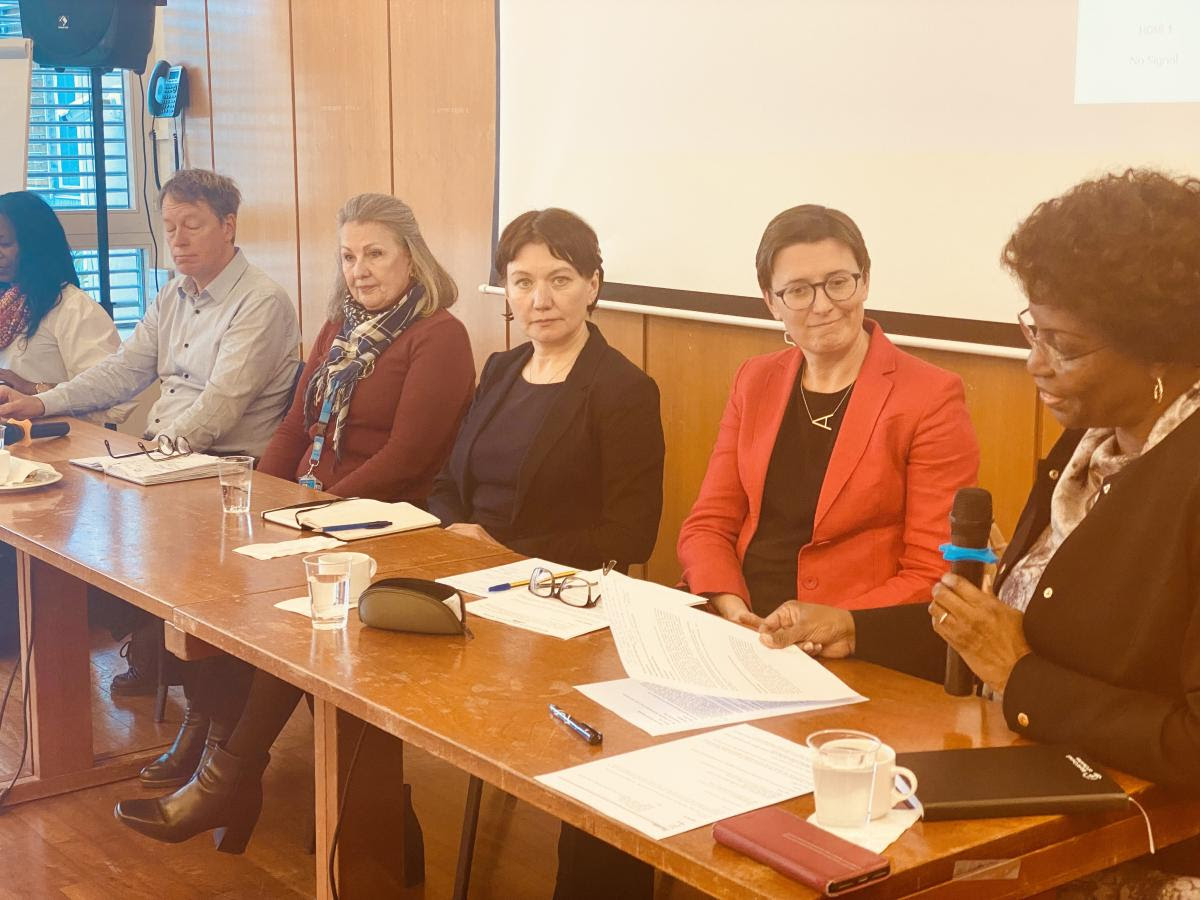Lutheran World Federation general secretary Rev. Anne Burghardt opened the discussion by introducing the 16 Days of action against gender-based violence, which kicked off on 25 November. “The Lutheran World Federation itself has quite a lot of history in engaging with 16 Days through organizing events and supporting initiatives in our member churches as well as in our country programmes,” she said. Burghardt also noted the 40 percent increase in gender-based violence that occurred in conjunction with the COVID-19 pandemic. “As faith-based organizations, the Lutheran World Federation and the World Council of Churches have worked together with various ecumenical and interfaith partners and also with governments and civil society actors on both global and national levels but often we realize our efforts have fallen really short,” said Burghardt. World Council of Churches deputy general secretary Prof. Dr Isabel Apawo Phiri then moderated a panel discussion, asking panelists for “an overview of the extent of the violence against women and girls, and some of the contributing factors.” Phiri underscored the importance of churches meeting their responsibility to prevent gender-based violence. “We all have a responsibility to prevent gender-based violence against women and girls—it’s not only the governments but the churches that have a responsibility.” Anna Parini, programme manager, UN Women, offered an overview of the latest UN reports on the rising incidents of violence against women, no matter whether a country is developed, undeveloped, or somewhere in between. “It’s a real global pandemic,” she said. “When a woman comes to a safe space—to a police station, to any safe place, to a religious leader or church—what are the services that she needs to really go on with her life?” Jakob Schneider, secretary, Committee on the Elimination of Discrimination against Women, offered an overview on UN conventions and mechanisms that address gender-based violence—and how those can potentially be strengthened. He offered examples of language in many articles. “Article 5 addresses gender stereotypes which are a root cause of gender-based violence against women and reinforce such violence,” he said. “There are many countries which don’t have legal aid for victims of violence, only for the perpetrators—which is a problem.” Many countries also deny women basic reproductive health, Schneider noted. The committee, in 2017, added an update on new types of gender-based violence, and has also recently added language on Indigenous women. Jane Aeberhard-Hodges, director of policy for the Every Woman Coalition, outlined her eight-year-long research into why it’s so difficult to end gender-based violence, She worked “to find out why, with the many UN and regional and international organizations’ statements about ending violence—why was violence not ending against women and girls?” Phiri thanked the speakers for bringing both experience and passion on many issues. “Despite the differences in approach, let’s talk about how we can work together to make sure we are protecting the lives of women and girls,” she said. “We have differences—but there are lives at stake here.” | 



No comments:
Post a Comment